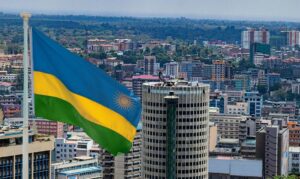Rwanda’s Visa-Free Reform, Promises a New Window for African Integration

Rwanda has taken a bold step toward strengthening African unity by scrapping both visa fees and advance visa applications for all African travelers. A remarkable and economic developmental policy that positions the Rwanda among the continent’s most open destinations.
The decision carries significance beyond the administrative ease it offers. Most people and social-relations separated by borders and bureaucratic hurdles, will find utmost relieve with this development, as frequent communion will hold endlessly. To prospective captains of businesses, industrialists, medium/big scale Africa transnational investors, for education tourism, etc., this reform promises a simpler traveling processing, encourages business-venture and promotes repeated visiting outlook. Students and young professionals stand to benefit too, with easier access to learning opportunities, internships and cross-border collaborations that were once hindered by the visa processing bottleneck and official cost.

In cultural terms, Rwanda just opened her door to a more fluid exchange of ideas, food, language, art, heritage, etc., elements that often struggle to flow freely across African borders, despite shared histories of variant stories cup-in a vast black rich continent. Now also, communities built around trade, tradition and kinship may find themselves reconnected in ways reminiscent of pre-colonial networks that once linked the continent.
From economic stance, the policy is expected to boost tourism, expanding Rwanda’s growing reputation as a hub for conferences, investment, innovation and tourism. Small/medium sized trades across Africa that were often constrained by travel barriers, may now find Kigali a more convenient meeting point for trading, birthing more market exploration. As for investors, this is an openness that welds-in a powerful signal.


Consequently, Rwanda’s visa-free policy strengthens the ongoing conversations about the African Continental Free Trade Area (AfCFTA) politically, and the broader push for cross-border flexibility as a cornerstone of regional growth. It also subtly challenges other African governments to reconsider the legacy of restrictive border systems that have persisted decades after independence.
Perhaps, most importantly the reform speaks to a continental aspiration for a journey into massive industrialization awakening. The belief that Africa’s progress rests on its ability to connect, trade and evolve its future collectively without stress, is moreso an understatement. In dismantling yet another vestige of isolation, Rwanda is nudging the Africa continent towards a vision of integration, which has been dragging over years in discussion, but rarely has seen implementation with such clarity.
As Africa works to shed the structural remnants of colonial-era’s fragmentation, Rwanda’s decision stands as a practical and symbolic reminder that free border crossing, is a pathway to shared prosperity in industrializing Africa.






